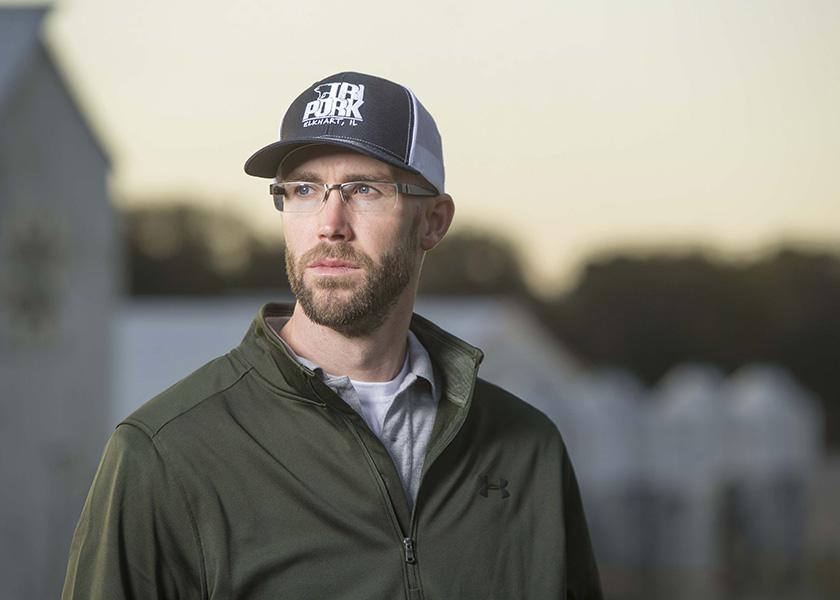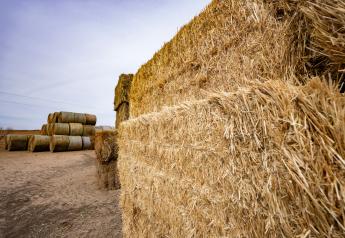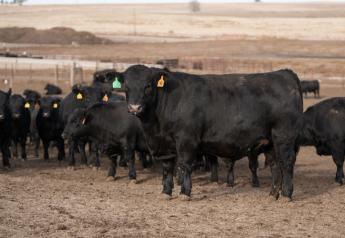Toxic Grit: Is Our Greatest Strength Our Greatest Weakness on the Farm?

“Suck it up buttercup.” This familiar phrase is one many farmers and ranchers learn early in life: be tough, self-reliant and resilient.
Although those aren’t bad traits, Shannon Ferrell, an ag law specialist at Oklahoma State University, said that line of thinking can cause us to become inward-facing and discourages us to talk about our feelings.
“Having a mental health issue can be quite stigmatizing,” Ferrell shared during the Online Top Producer Summit. “There’s a fear of being misunderstood, invalidated or judged. We think it’s better to battle in silence.”
But it’s not. Talking about how you feel can head off problems before they become issues.
Why Is Farming So Stressful?
Ferrell said farming and ranching are physically hazardous professions. Not only is it physically demanding because farmers and ranchers deal with lots of big equipment, but sometimes they are operating by themselves, which makes it even more emotionally and physically stressful.
“We have to be able to deal with lots of traumas that come from operating in a risky environment like farmers and ranchers do. But human beings don't have an unlimited ability to process trauma without some form of support,” he said. “Sometimes that support needs to come from somebody else. Toughness is good, but toughness to the point it prevents us from getting help when we actually need it, can actually be a negative.”
Lack of control over the environment, prices, weather and more stack up. Equipment fails. Property gets damaged. The list of challenges outside of a farmer or rancher’s control adds up fast.
How Did COVID-19 Change Things?
One of the biggest challenges with the COVID-19 pandemic is when things shut down, many of the ways farmers accessed support shut down, too. Coffee shops closed, co-op tables were removed, meetings went virtual, church activities ceased.
“If you take any of those things away from them, you’re taking away a type of routine they normally have,” Brent Brewer of the Oklahoma Farmers Union said in the webinar. “Farmers are a unique type of person, they have that can-do attitude, they're strong, they're independent, they're by themselves all day sometimes on a tractor 14-16 hours a day they have a lot of idle time to think.”
That’s why those coffee shops and co-op tables are so important, Brewer said. COVID-19 has forced people into even more isolation which has increased stress and taxed our ability to deal with it.
Confront Reality
In America, one in five adults experience a form of mental illness in a year. At some point in the year, Ferrell explained, nearly 20% of people are dealing with some form of a clinical mental health issue and approximately one in 25 adults in any given year will experience a serious mental health issue that substantially interferes with their ability to work, interact with their family or carry on in some of their major and regular life activities. Sadly, two-thirds of people with a known mental illness don't seek treatment.
“One of the most important things we can do in agriculture is to erase the stigma that's associated with mental illness, to let people know it's OK to talk about emotional concerns. It's OK to talk about their mental health and to get help because it's the healthy thing to do,” Ferrell said.
Support Your Friends
There are a number of challenges rural communities face when it comes to healthcare and access, but another reason why mental health struggles are increasing in rural areas is because it’s often hard to find people who truly understand the perspective farmers and ranchers have.
“That's why farmer and rancher peer counseling can be such an effective tool, and in some cases, might be the only tool,” Ferrell said. “It may be you have the chance to be the first responder, the first on the scene when someone you know and care about is experiencing a severe mental health crisis and you might be the only one equipped to intervene.”
We can help by acknowledging we all have struggles, he added.
“Our farmers and ranchers are tough, but that toughness doesn't have to be a weakness,” Ferrell said. “It can still be a strength if we're tough enough to talk about how we feel and meaningfully and compassionately engage with those around us that are dealing with mental health concerns.”
Read more from Ferrell and Brewer in When Stress Goes Beyond Normal and 7 Resources to Keep Close In Case a Crisis Hits.
Read More:
Take Care of Yourself Even in the Midst of Crisis
Connect With Farmers In-Person On Mental Health
Simple, Daily Habits to Help Manage Stress
Loneliness on the Job: 3 Ways to Fight Isolation
3 Simple Tips to Get Your Health on Track







